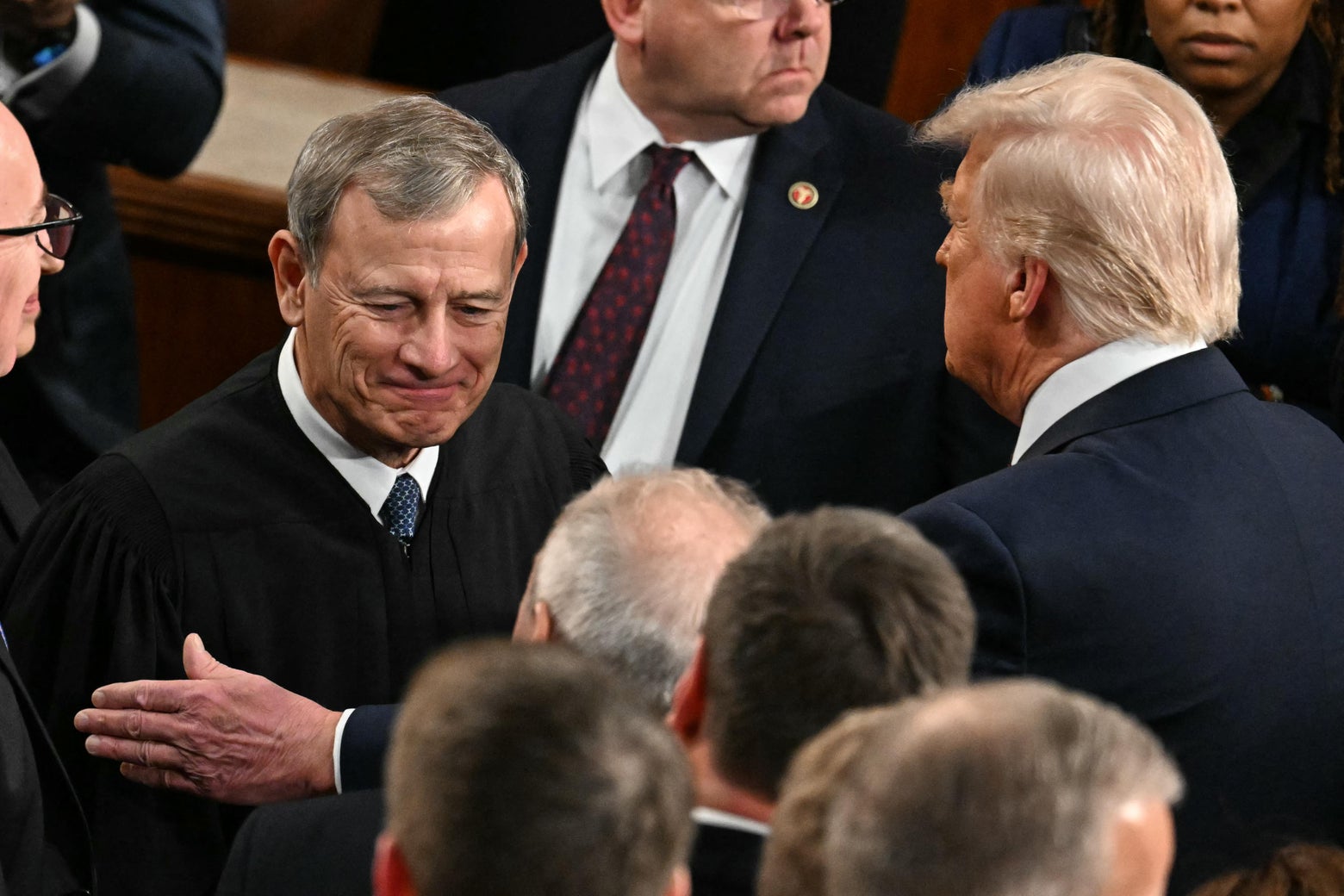Summary
First, it acted with startling speed—so quickly, in fact, that it published the order before Alito could finish writing his dissent; he was forced to note only that a “statement” would “follow.”
Relatedly, awkward phrasing in court’s order may imply that Alito—who first received the plaintiffs’ request—failed to refer it to the full court, as is custom, compelling the other justices to rip the case away from him.
Second, it is plain as day that the Supreme Court simply did not trust the Trump administration’s claims that it would not deport migrants over the weekend without due process.
Finally, and perhaps most obviously, it’s critical that only Thomas and Alito noted their dissents. When the court takes emergency action, justices don’t have to note their votes, but they usually do; we can probably assume that this order was 7–2. That would mean that Chief Justice John Roberts—along Justices Neil Gorsuch, Brett Kavanaugh, and Amy Coney Barrett—joined this rebuke to the Trump administration.



Suddenly the executive order that English is the official language of the United States became a lot more clear in it’s purpose.
Probably, but that shit isn’t even written in English. It’s written in lawyer.
Have you noticed that with enough money you can’t just commit a crime? Trump could pop in the Epstein video of him on every display in Times Square and the response would be “the alarming possibility that Trump engaged in potentially illegal acts.”
The law has become so inscrutable that you literally can’t know whether a crime has been committed until you have a jury trial. How is a soldier supposed to disobey illegal orders when he can’t possibly know whether orders are legal or not?
I remember I wasn’t too long out of the army when the stuff about waterboarding and abu graib came out. I would’ve refused orders to torture people had I been there. And I’d have probably gone to Leavenworth for years for disobeying orders.
It’s time to just burn the whole system down.
I get what you’re saying, but one of our foundational principles (at least until now) was that people are presumed innocent until proven guilty in a court of law. So this notion that “we can’t know if a crime has been committed until a jury says so” isn’t a bug, it’s a feature. Yes, it makes things complicated, but it is designed to minimize the chance that innocent people can be deprived of their liberties just because the government doesn’t like them.
I’d counter part of that is that US law is based on common law, which is defined by prior court cases not just law - vs civil law which is only based on law.
There are issues with both of course, but, its common law that requires lawyers and knowledge of every court case and knowing what a judge in the 1800s thought a word means to win or lose a case.
I think the common law system of justice is deeply flawed and leads to this legalese where everything is vague and malleable with no certainty
A Tsunami of executive orders… this one passed me by. Thanks for pointing it out.
https://www.whitehouse.gov/presidential-actions/2025/03/designating-english-as-the-official-language-of-the-united-states/
It’s kinda amazing how this was something people debated for a long time, talked about potential benefits and consequences, tossed around different reasonable ways to mitigate harm that might be done, what the point or use would be…
Then Trump just signs a piece of paper, and it’s barely even newsworthy before we move to the next thing.